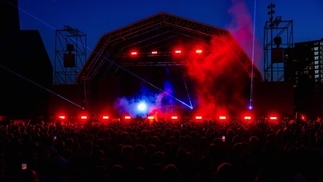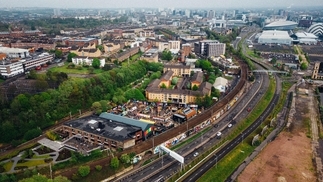Nightclub to use dancers’ body heat to power venue
The Glasgow address has long-term plans to go carbon neutral

A Scottish nightclub is trialling a new technology that harnesses the heat generated from those on the dancefloor to help power the venue, in turn reducing emissions.
SWG3 in Glasgow is reportedly the first venue in the world to test the BODYHEAT system. The initiative is being rolled out as part of the UN-backed COP26 climate conference, which begins in the city on 31st October.
Honey Dijon will play a launch party to celebrate on 7th November, and is also designing a BODYHEAT t-shirt with staff from the venue.
"BODYHEAT uses heat pumps and fluids to capture the incredible amounts of body heat generated by SWG3's crowds, channelling their combined energy into twelve 150m-deep bore holes drilled beneath the venue," said a statement published to the club's website.
The energy can then be used throughout the venue in real-time, or stored for several months and utilised at a later date.
The human body emits around 100watts of excess heat. According to the venue's own estimates, this means around 70 tonnes of CO2 could be saved through this new process based on pre-pandemic attendance figures.
"There's no doubt that the COVID-19 pandemic has brought huge challenges to the events sector around the world, but it has also created a seismic jolt across businesses — underlining the need for a stable and sustainable future," said Andrew Fleming Brown, SWG3 Managing Director.
"BODYHEAT is our innovative contribution to a global issue, and will help us to dramatically decrease our energy consumption - bringing us one step closer to becoming a carbon-neutral venue in the not-so-distant future," he continued.
The news comes at a time when the music industry as a whole is facing increasing pressure to reduce its contribution to climate change and waste. In March, Clean Scene released a report on the environmental effects of touring DJs. Last October, Massive Attack unveiled a short film on the ecological impact of the scene. And back in February 2020 DJ Mag published a long-read assessing how festivals can cut back on emissions and other harmful aspects of events.





